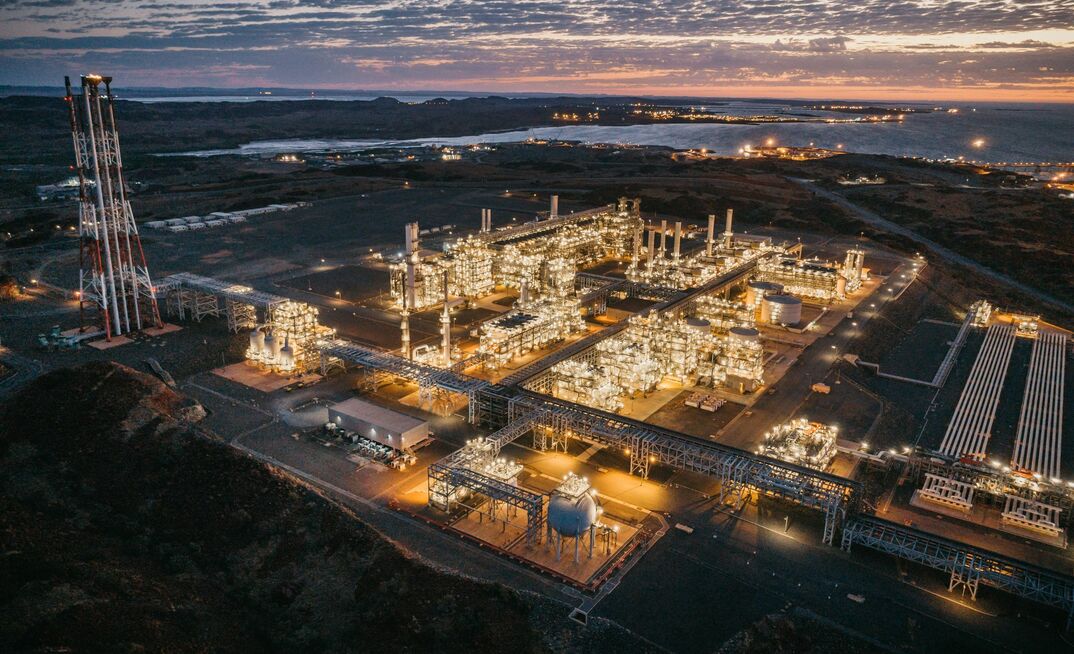The findings have led to one advocacy group to urge shareholders to call for board renewal.
Woodside commissioned Australia's peak scientific body in 2019 to conduct the research to back up claims that increasing gas exports could reduce emissions in Asia by replacing coal with gas, a line that has been repeated by state and federal governments and APPEA, in the lead up to it sanctioning the Scarborough gas project.
Woodside CEO Meg O'Neill described Scarborough, which will lock in LNG exports for another 30-years starting in 2026, as "an appropriate investment from a decarbonisation perspective".
"We expect that LNG produced from Scarborough will be a contributor to the decarbonisation efforts of our customers in Asia, particularly given the increased push away from coal," she said in November, the day it was green-lit.
The report was canned by Woodside; however it has today been published after the Nine newspapers launched a Freedom of Information request.
It tested a range of scenarios on the rate and scale of decarbonisation efforts in Asia and found Woodside's claims would only stack up if a strong enough global carbon price, or similar market signal, was put in place to massively drive up the use of renewables where gas would be needed for firming purposes.
"Under the high carbon price of the Sustainable Development Scenario, there is a significant shift towards renewable electricity generation and substantial emissions reduction benefits can be achieved from increased gas supply because its supporting higher renewable shares," the report states.
"Until the carbon price reaches that level, their impact on emissions reduction is either negative or neutral.
"After renewables have reached a high share, additional gas supply has nothing further to contribute to emissions reductions."
The report estimates that a carbon price of A$150 per tonne of CO2 equivalent by 2040 would be needed for such a scenario to eventuate, compared to today's Australian Carbon Credit Unit spot price of A$32.
It also found that low renewable energy resource regions should not be targeted for increased gas exports, "or if targeted at all, only after they have exhausted renewable options".
A Woodside spokesperson told Energy News that the report had rapidly become out-of-date and it had not been attempting to suppress it.
"This CSIRO report doesn't contradict our advocacy and was just one input considered several; years ago, based on now out-of-date IEA modelling from 2018," she said.
"It has been superseded by the up-to-date analysis which is clearly set out in our Climate Report 2021 and which takes account of the actual policies now being adopted by our target markets to reflect their Paris-aligned goals, which also post-date the CSIRO report."
However questions put to Woodside about its 2021 Climate Report by Energy News last month made it concede that it has yet to figure out how it will reduce its emissions in the years after 2030 and that its net zero emissions by 2050 goal is aspirational only, "not a target, for now".
The company plans to reach its 2030 emissions goal of 30% primarily through its offsets business and its net zero by 2050 goal has prominently featured in its advertisements and promotional material.
The CSIRO report's findings bear a striking resemblance to those made by the Australasian Centre for Corporate Responsibility in a report published last month, which found that the coal-to-gas switching narrative pushed by industry was flawed.
ACCR climate director Dan Gocher told Energy News that shareholders should call for Woodside sustainability committee chair Ann Pickard to step down, considering the report's findings, and broader board renewal should be considered.
"I think shareholders should be calling for accountability and there's no better place to start than the board," he said.
"If Woodside shareholders believe the company has misled them, they should do everything they can to put the brakes on Scarborough and Pluto.
"Increasing Australian gas doesn't reduce emissions, it just delays the transition to renewables."
Referring to the reports findings on carbon pricing, Gocher said he had previously spoken to former Woodside CEO Peter Coleman about a global carbon price but said he had seen little action from Woodside or the broader industry to support more rigorous carbon pricing frameworks.
"There's a disconnect between what they need to do to transition and the advocacy that they fund," he said.
The Woodside spokesperson told Energy News that it has been advocating for a price on carbon for some time and "does not agree with the ACCR's contentions".























